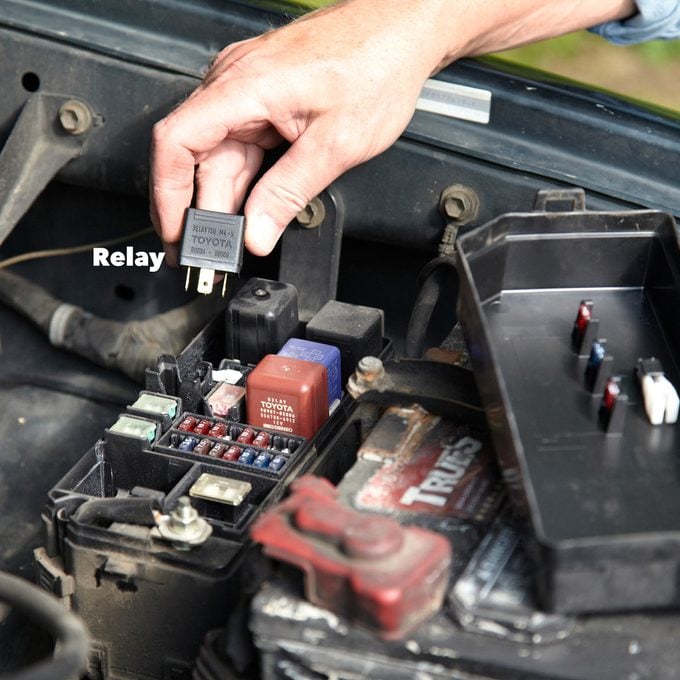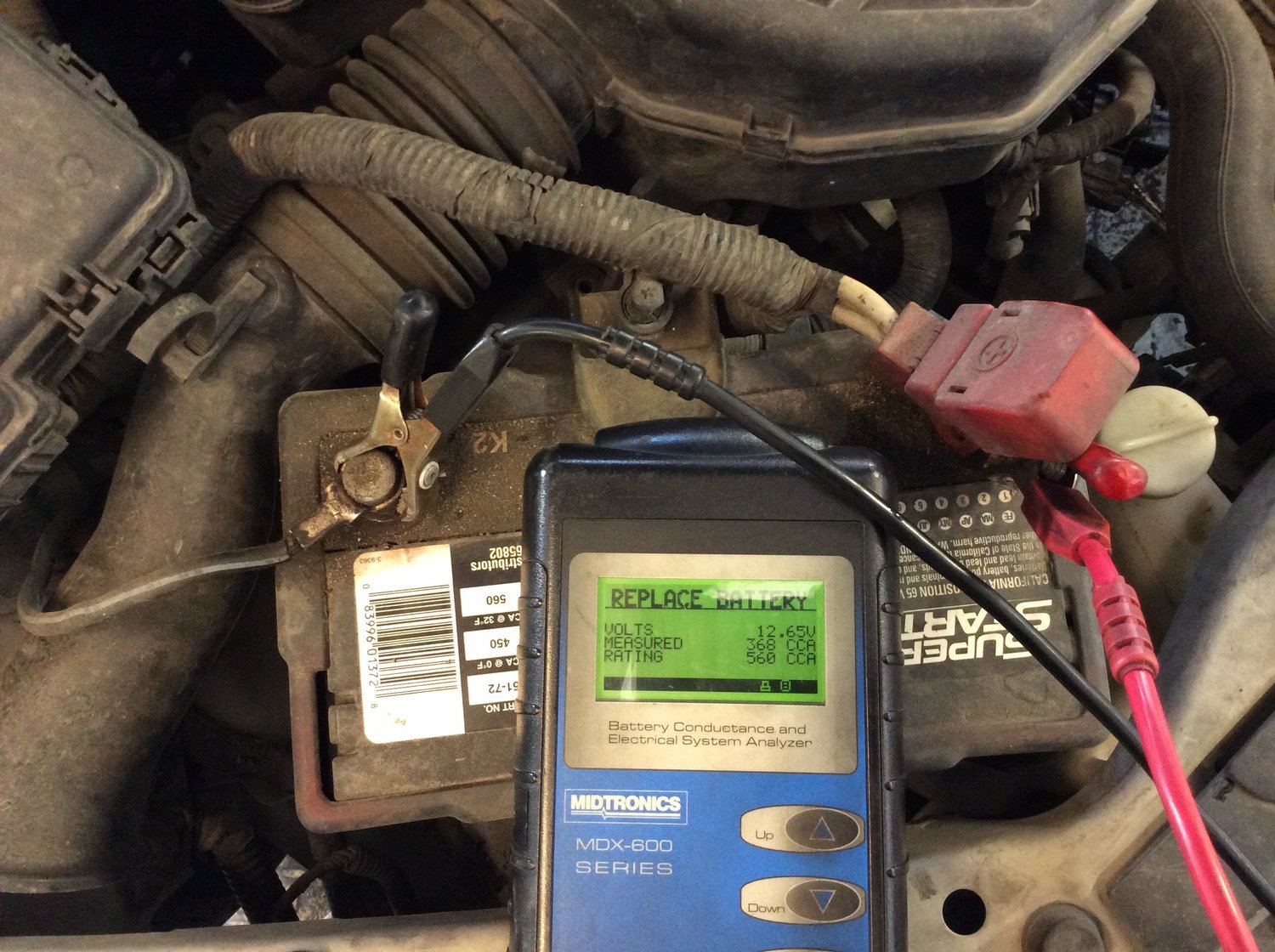If your car won’t start but the battery is good, the issue could stem from other components like a faulty starter motor, ignition switch, or fuel system. Corroded battery terminals, a blown fuse, or even a bad alternator might also prevent the engine from turning over. Checking these areas systematically can help identify the problem and get your car running again.
Few things are more frustrating than hopping into your car, turning the key or pressing the start button, and… nothing happens. But when the battery is good, the situation becomes even more perplexing. A dead battery is often the go-to culprit for car starting issues, but if the battery is fully charged, you’ll need to dig deeper into other components.
This comprehensive guide will help you troubleshoot and identify potential causes, as well as provide solutions for why your car won’t start despite having a good battery.

Credit: blog.bestride.com
Contents
- 1 Key Components to Understand
- 2 Reasons Why Car Won’t Start But Battery is Good
- 2.1 1. Check the Starter Motor
- 2.2 2. Faulty Ignition Switch
- 2.3 3. Problems with the Fuel System
- 2.4 4. Defective Starter Relay
- 2.5 5. Engine Immobilizer or Security System
- 2.6 6. Bad Spark Plugs or Ignition Coils
- 2.7 7. Corroded or Loose Battery Connections
- 2.8 8. Blown Fuses
- 2.9 9. Bad Alternator
- 2.10 10. Transmission in the Wrong Position
- 3 Frequently Asked Questions
- 4 Conclusion
Key Components to Understand
To troubleshoot a car that won’t start, it’s essential to understand the components involved in the starting process. When you turn the key or push the start button, several systems must work together for the engine to turn over:
- Battery: Supplies electrical power to the starter and other components.
- Starter Motor: Engages the engine to initiate the combustion process.
- Alternator: Recharges the battery while the engine is running.
- Ignition Switch: Sends a signal from the key or button to the starter motor.
- Fuel System: Supplies fuel to the engine for combustion.
- Fuses and Relays: Manage electrical circuits in the vehicle.
If any of these components fail, it could prevent the car from starting, even if the battery is in good condition.
Reasons Why Car Won’t Start But Battery is Good
When your car won’t start, but you’re sure the battery isn’t the problem, the cause often lies elsewhere in the electrical, fuel, or mechanical systems. Below are some of the most common reasons:
1. Check the Starter Motor
The starter motor is responsible for cranking the engine and getting your car running. When you turn the key or press the button, the battery sends an electrical charge to the starter, which turns the engine over. However, if the starter is faulty, even a fully charged battery won’t do the job.
Symptoms of a Faulty Starter:
- Clicking sound when you turn the key (this means the solenoid is engaging, but the motor isn’t turning).
- No sound at all, which could indicate a completely dead starter motor.
Solutions:
- If the starter is the issue, it will likely need to be repaired or replaced. Sometimes, tapping the starter gently with a hammer can temporarily get it working again, but this is only a temporary fix.
2. Faulty Ignition Switch
The ignition switch is another essential part of the starting process. When the key or start button is activated, the ignition switch sends a signal to the battery to power up the electrical systems and the starter. If the ignition switch fails, this connection won’t be made, meaning no power will reach the starter despite the battery being good.
Symptoms of a Faulty Ignition Switch:
- Car accessories like the radio or dashboard lights won’t come on when you turn the key to the “On” position.
- The key or start button doesn’t engage the engine.
Solutions:
- Replacing the ignition switch is usually the most effective solution. This can be done by a professional mechanic or, in some cases, as a DIY project.
3. Problems with the Fuel System
If your car’s battery is functioning well, but the engine isn’t turning over, the issue could lie with the fuel system. Your car needs a continuous supply of fuel to ignite and start, and several components control fuel flow.
Possible Causes:
- Fuel Pump Failure: The fuel pump delivers gasoline from the tank to the engine. If it malfunctions, your engine won’t receive fuel.
- Fuel Filter Clogging: A clogged fuel filter can block the flow of gasoline.
- Empty Gas Tank: Sometimes the fuel gauge might not be accurate, leading you to believe you have fuel when you don’t.
Symptoms of Fuel System Problems:
- The car cranks but doesn’t start.
- You hear the fuel pump prime (a faint buzzing sound) when you turn the key to the “On” position. If you don’t hear this, the pump might be dead.
Solutions:
- Fuel Pump: If the pump has failed, you’ll need to replace it.
- Fuel Filter: Check and replace a clogged fuel filter.
- Fuel Level: Double-check your fuel level and fill up if needed.
4. Defective Starter Relay
The starter relay is an electrical component that helps send power from the battery to the starter motor. If this relay is faulty, even a fully charged battery won’t be able to power the starter.
Symptoms of a Bad Starter Relay:
- A clicking noise coming from the relay under the hood when trying to start the car.
- Complete silence when attempting to start the vehicle.
Solutions:
- Replacing the starter relay is a relatively inexpensive and straightforward repair.

Credit: www.familyhandyman.com
5. Engine Immobilizer or Security System
Most modern cars come equipped with a security system that includes an immobilizer. This system prevents the car from starting without the proper key or fob. If the immobilizer is malfunctioning or the key fob battery is dead, your car may not start, even though the battery is fine.
Symptoms of Immobilizer Issues:
- A flashing or solid key-shaped light on the dashboard.
- The car won’t start despite having a fully charged battery.
Solutions:
- Key Fob: Replace the battery in key fob.
- Reset Immobilizer: Sometimes, resetting the system (following instructions in the vehicle’s manual) can solve the issue.
6. Bad Spark Plugs or Ignition Coils
Spark plugs ignite the air/fuel mixture in the combustion chamber, and ignition coils provide the high voltage necessary for that spark. If your spark plugs or ignition coils are faulty, your engine won’t fire, even with a good battery.
Symptoms of Bad Spark Plugs/Coils:
- Engine cranks but doesn’t start.
- Engine misfires or runs poorly before the starting problem arose.
Solutions:
- Replace the spark plugs or ignition coils as necessary. Regular maintenance includes changing spark plugs every 30,000 to 100,000 miles, depending on the type used.
7. Corroded or Loose Battery Connections
Even if your battery is in good condition, if the terminals (the connectors) are corroded or not tightly connected, the power won’t reach the starter or other electrical systems.
Symptoms:
- The car doesn’t start, but interior lights or accessories may still work.
- Visible corrosion (white or blue-green powdery substance) on the battery terminals.
Solutions:
- Clean the terminals with a wire brush and tighten them to ensure a good connection.

Credit: tommyht.com
8. Blown Fuses
Cars are equipped with numerous fuses to protect electrical circuits. A blown fuse in the ignition or starter system could prevent the car from starting, despite a working battery.
Symptoms of a Blown Fuse:
- Complete failure to start, often with no sound at all from the starter.
- Some electrical components may not work, like the radio or dashboard lights.
Solutions:
- Check your car’s fuse box and replace any blown fuses with new ones of the same amperage rating.
9. Bad Alternator
While a bad alternator typically leads to a dead battery, it can also prevent the car from starting even if the battery still has some charge left. If the alternator is failing, it may not be providing enough power to the starter motor.
Symptoms:
- Dim or flickering headlights.
- Warning lights on the dashboard, especially the battery or alternator light.
- The car dies shortly after starting.
Solutions:
- Have the alternator tested and replaced if necessary.
10. Transmission in the Wrong Position
If your car is in gear, it won’t start for safety reasons. Your vehicle needs to be in “Park” (for automatics) or the clutch fully depressed (for manuals) in order to start.
Symptoms:
- Nothing happens when you try to start the car.
Solutions:
- Ensure the gearshift is in “Park” or “Neutral.”
- Depress the clutch pedal fully before trying to start.
Frequently Asked Questions
Here are some FAQs about problem with starting the car –
1. Can a car battery be good and the alternator bad?
Yes, the alternator is responsible for charging the battery while the car is running. If the alternator is bad, the battery won’t recharge, and even a good battery can eventually run out of power.
2. Why does my car click but won’t start?
A clicking sound typically indicates a problem with the starter motor or a weak connection between the battery and the starter.
3. What should I do if my car doesn’t start after checking the battery?
Check other components such as the starter motor, fuel system, ignition switch, and spark plugs. Also, inspect fuses and battery terminals for corrosion.
4. Can a blown fuse prevent my car from starting?
Yes, a blown fuse in the starter or ignition circuit can prevent the car from starting. Check your fuse box and replace any blown fuses.
5. What are the signs of a faulty starter motor?
A faulty starter motor may produce a clicking sound when you turn the key or no sound at all. It can also cause the engine to fail to turn over despite a fully charged battery.
Conclusion
A car that won’t start despite having a good battery can be frustrating. However, by understanding the common reasons behind this issue, such as a faulty starter or fuel system problems, you can effectively troubleshoot and resolve the issue. Regular maintenance and professional assistance are key to keeping your car in top condition.